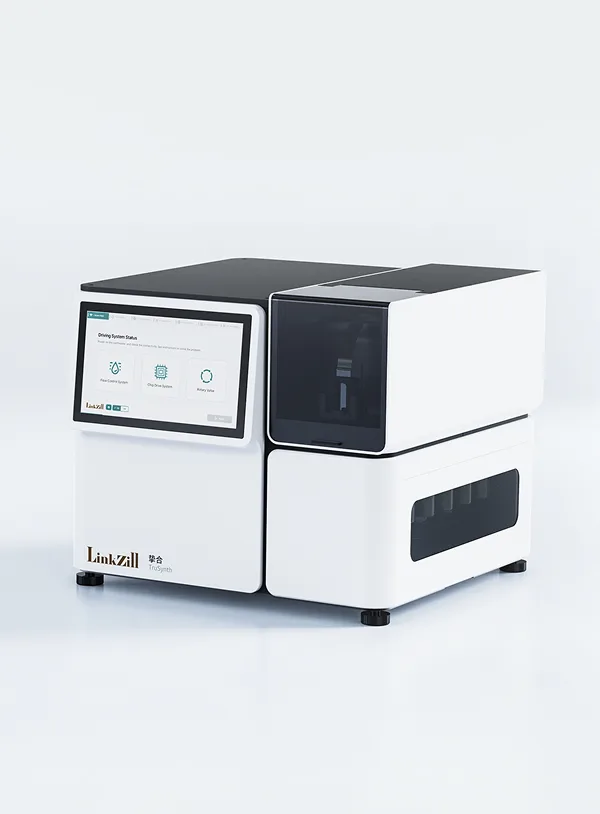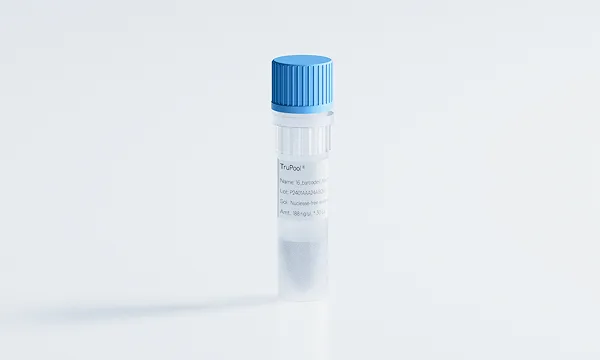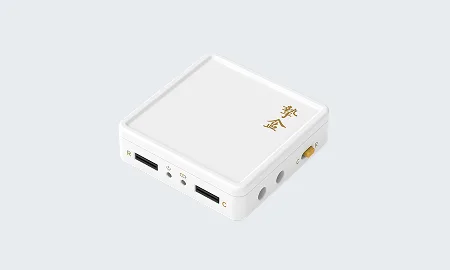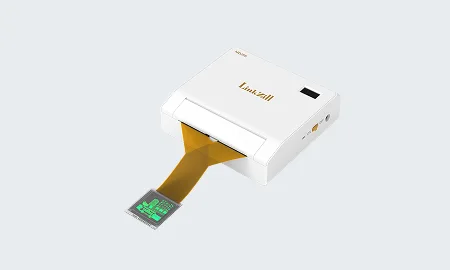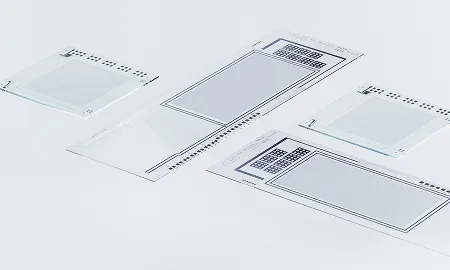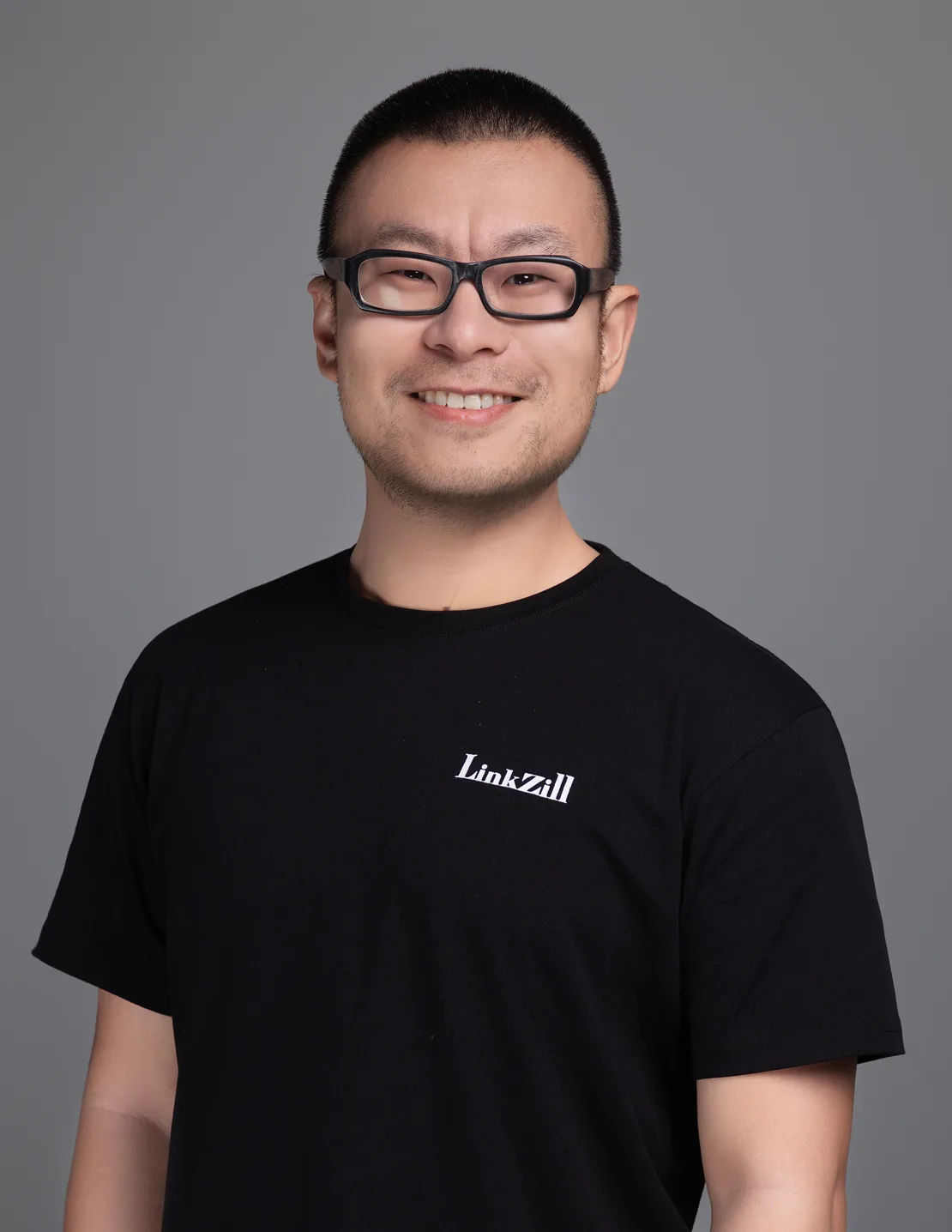An oligo microarray, also known as a DNA/RNA/XNA chip,
consists of arrayed spots attached to a solid surface (such as glass, silicon, or TFT semiconductor chip),
and each spot contains specific single-stranded oligonucleotide probes.
An oligo microarray, also known as a DNA/RNA/XNA chip, consists of arrayed spots attached to a solid surface (such as glass, silicon, or TFT semiconductor chip), and each spot contains specific single-stranded oligonucleotide probes.
Highlights
Flexible array size
Support for
chip customization [1]
- Flexible and customizable spot size, within one chip
High precision [2] [3]
- Coverage up to >99.9%
- Error rate down to <0.6%/nt
High inter-spot oligoprobe amount uniformity [2] [3]
- Q95:Q5<1.2X
- Q99.5:Q0.5<1.5X
Support for sequence customization [1]
- Support for degenerate bases
- Support for special monomers
- Support for 5′ modifications
Low barriers to customization
- Microarray customization costs as low as $1,000 level
Application Scenarios
- Pathogen and resistance screening
- Pharmacogenetics
- Germplasm identification
- High-throughput aptamer discovery
- Genomic variant genotyping
- Gene expression profiling
- In situ spatial OMICs
- Non-mass spec proteomics
- equencing technology
- In situ gene synthesis
- Solid-phase capture
- Medical diagnostics
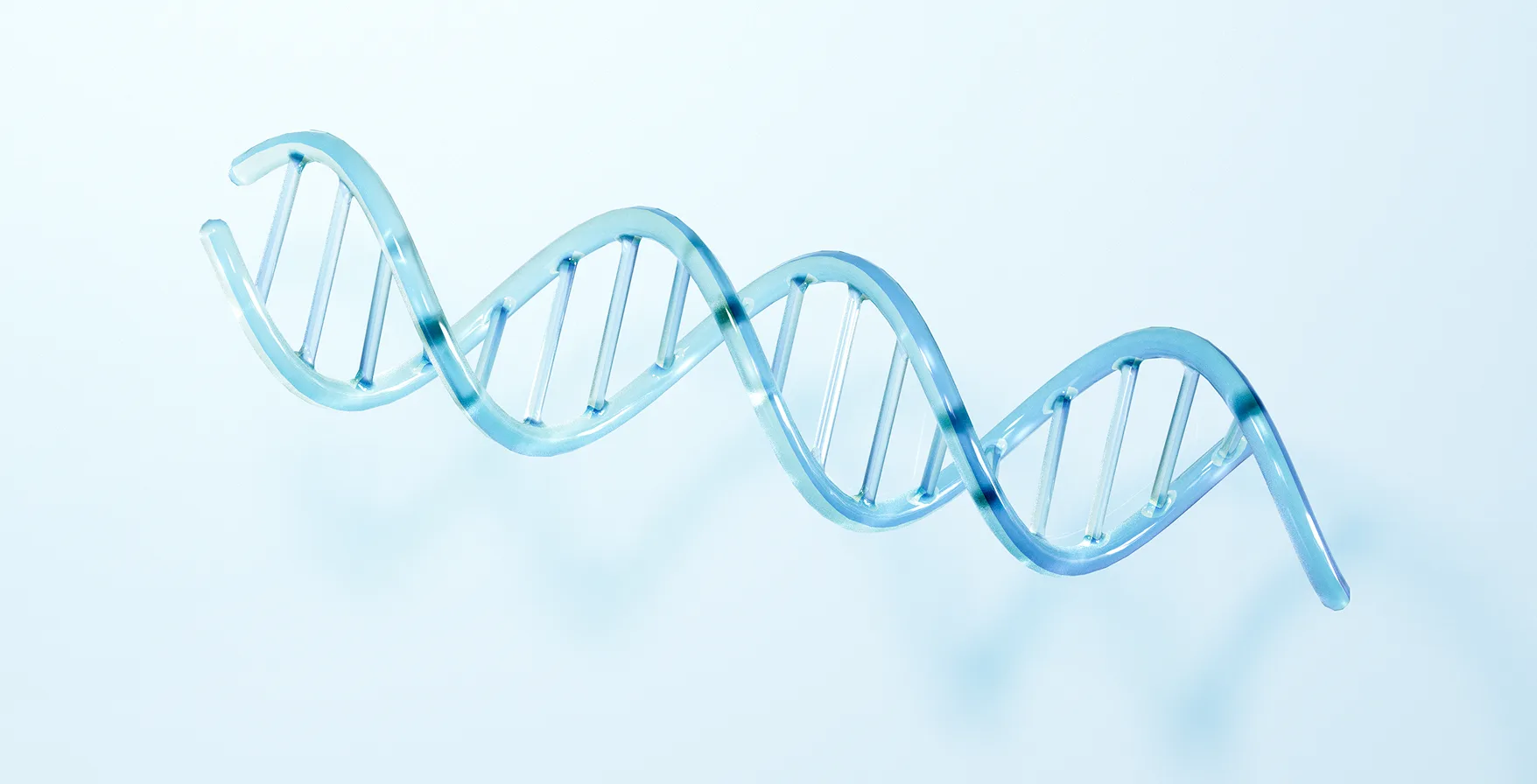
Product Category
| Product Category |
Delivery Form |
Available Customization |
Oligo Length |
Chip Dimensions |
Array Size |
Turn-around Time |
|
TruArray® Std |
DNA microarray chip, 3'-end coupled to the chip surface [4] |
• Degenerate base [1] • Special monomer [1] |
10~150nt [5] | 76.2mm×25.4mm | 4K [6] |
2~10 working days |
| 65K [6] | ||||||
| 0.5M [7] |
| Product Category | TruArray® Std | ||
| Delivery Form | DNA microarray chip, 3'-end coupled to the chip surface [4] | ||
| Available Customization |
• Degenerate base [1] • Special monomer [1] |
||
| Oligo Length | 10~150nt [5] | ||
| Chip Dimensions | 76.2mm×25.4mm | ||
| Array Size | 4K [6] | 65K [6] | 0.5M [7] |
| Turn-around Time | 2~10 working days | ||
Specifications
| Array Size | Up to 4,096 or 65,536 per chip |
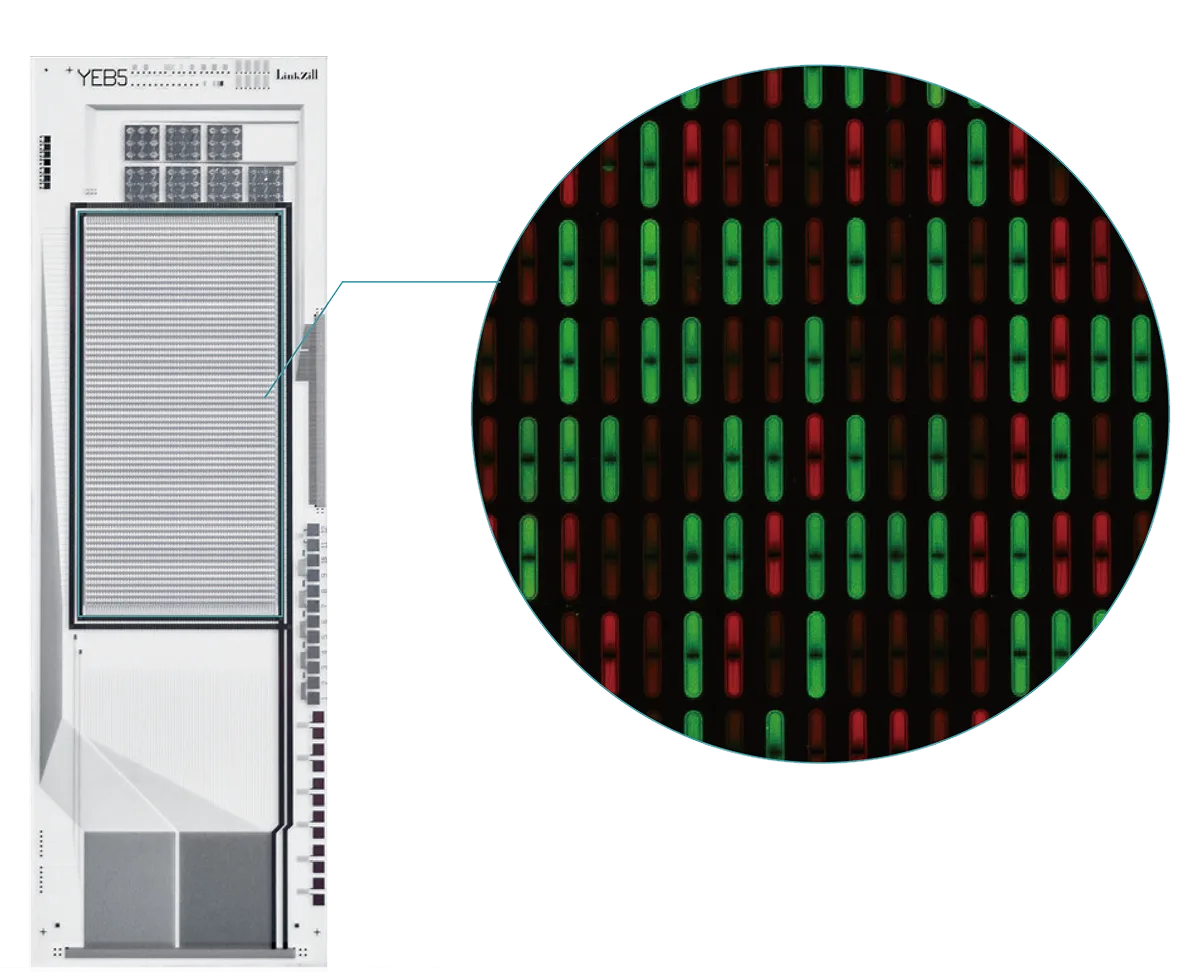 |
| Oligo Length | Up to 150 nt | |
| Coverage | >99.5% | |
| Error Rate | < 1.0%/nt | |
| Inter-spot Uniformity |
• > 90% of oligos represented within < 2.0X of the median • > 99% of oligos represented within < 3.0X of the median |
|
| Available Special Monomers |
• Degenerate base • Special monomer |
|
| Turn-around Time | 2~10 working days |
| Array Size | Up to 4,096 or 65,536 per chip |
| Oligo Length | Up to 150 nt |
| Coverage | >99.5% |
| Error Rate | <1.0%/nt |
| Inter-spot Uniformity |
• >90% of oligos represented within <2.0X of the median • >99% of oligos represented within <3.0X of the median |
| Available Special Monomers |
• Degenerate base • Special monomer |
| Turn-around Time | 2~10 working days |




